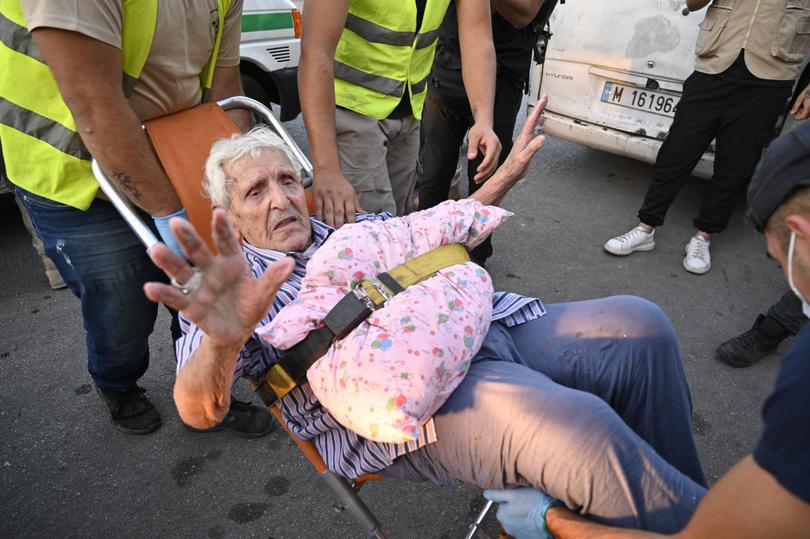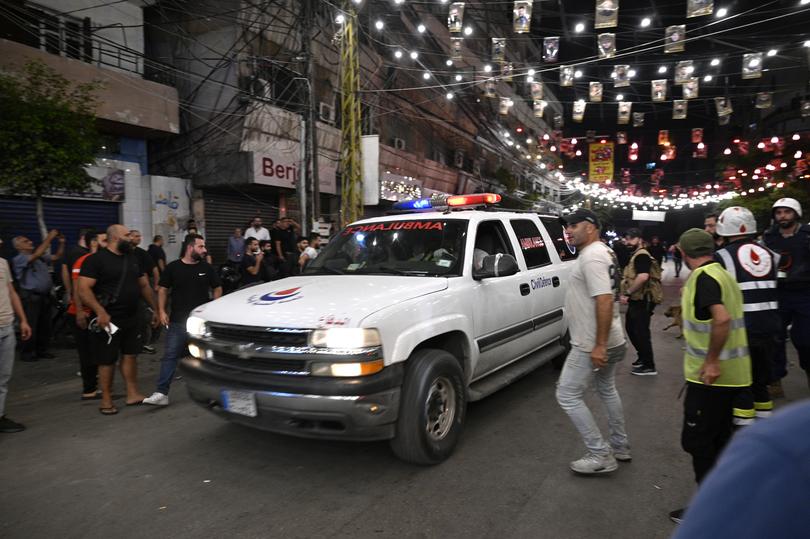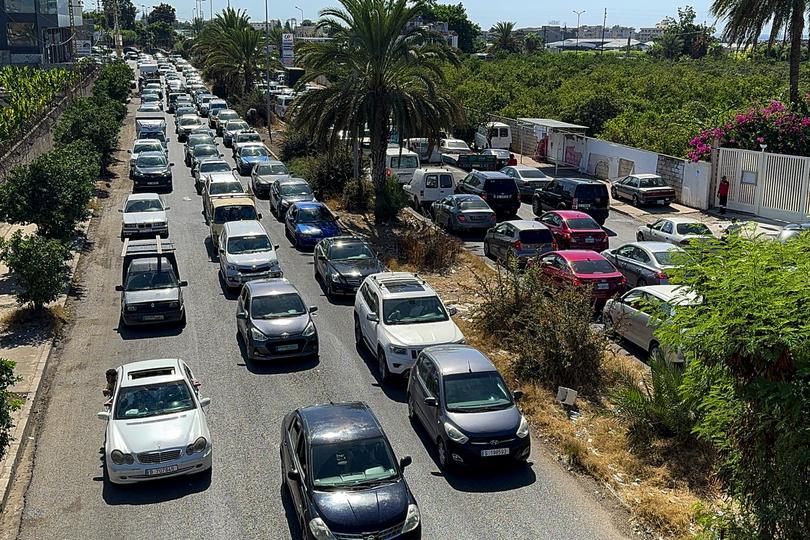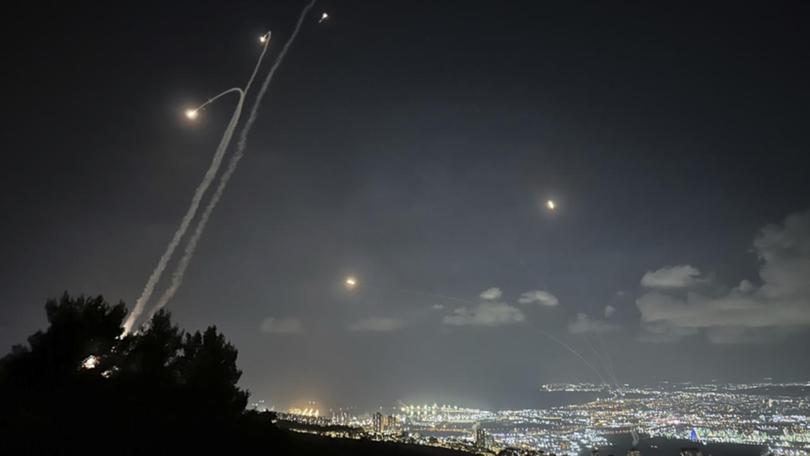Lebanon: Israel air strikes kill 492, injures 1,600, as Netanyahu tells civilians to ‘get out of harm’s way’
Israeli air strikes have killed 492 people and injured over 1,600 in Lebanon, as Israeli PM Netanyahu issues a chilling warning for civilians to get out of harm’s way.
Hundreds of air strikes have caused devastation in Lebanon, with rockets raining down on the region in the deadliest day of attacks since 2006.
Israel said it launched air strikes against hundreds of Hezbollah targets, killing 492 people, injuring over 1,600 and sending tens of thousands fleeing for safety.
Israeli Prime Minister Benjamin Netanyahu sent a short video statement addressed to the Lebanese people.
Sign up to The Nightly's newsletters.
Get the first look at the digital newspaper, curated daily stories and breaking headlines delivered to your inbox.
By continuing you agree to our Terms and Privacy Policy.“Israel’s war is not with you, it’s with Hezbollah. For too long Hezbollah has been using you as human shields,” he said.
“The IDF has warned you to get out of harm’s way. I urge you: take this warning seriously.”
Lebanon’s prime minister Najib Mikati described Israel’s attack as “a war of extermination”.
Lebanon’s health ministry said of the 492 people killed, there were 35 children and 58 women.
After some of the heaviest cross-border exchanges of fire since the hostilities flared last October, Israel warned people in Lebanon to leave areas where it said the armed movement was storing weapons.
Nasser Yassin, the Lebanese minister co-ordinating the crisis response, told Reuters 89 temporary shelters in schools and the like had been activated, with capacity for more than 26,000 people as civilians fled “Israeli atrocities”.
Fear of an all-out war in the region continues to grow as Israel escalates action against Hezbollah.
After almost a year of war against Hamas in Gaza on its southern border, Israel is shifting its focus to the northern frontier where Hezbollah has been firing rockets into Israel in support of Hamas
Israel’s military said it had struck Hezbollah in Lebanon’s south, east and north.
One Lebanese official said it was Lebanon’s highest daily death toll from violence since the 1975-1990 civil war.
Israeli Defence Minister Yoav Gallant said Monday marked a “significant peak” in the nearly year-long conflict.
“On this day we have taken out of order tens of thousands of rockets and precise munition. What Hezbollah has built over a period of 20 years since the second Lebanon War, is in fact being destroyed by the IDF,” he said in a statement.

The Israeli air force said on X it had carried out about 650 strike missions in the past 24 hours, attacking more than 1100 targets using more than 1400 munitions, hitting buildings vehicles and other places where it said weapons were stored.
On Monday evening Israel launched a strike on Beirut’s southern suburbs aimed at senior Hezbollah leader Ali Karaki, the head of the southern front, a security source told Reuters.
Hezbollah later said Karak was okay and moved to a safe place.
Earlier, Gallant said the campaign would continue until “we achieve our goal to return the northern residents safely to their homes”.
Hezbollah for its part has vowed to fight on until there is a ceasefire in the Gaza Strip.

The Israeli military said it had struck about 800 targets connected to Hezbollah in southern Lebanon and the Bekaa valley.
“Among the targets struck were buildings where Hezbollah hid rockets, missiles, launchers, UAVs and additional terrorist infrastructure,” it said in a statement.
Al-Jazeera has reported that over 110,000 people are attempting to flee Lebanon as attacks continue to escalate.
Long queues of traffic fill highways across the country as people attempt to escape with their lives.

Hezbollah has not commented on Israeli claims that it hid weapons in houses, which Reuters could not independently verify, but it has said it does not place military infrastructure near civilians.
In response to the strikes, Hezbollah said it had launched dozens of missiles at a military base in northern Israel.
Sirens warning of Hezbollah rocket fire sounded across northern Israel, including in the port city of Haifa, and in the northern part of the occupied West Bank, the military said.

Israel’s military spokesman said Israeli aircraft were preparing to attack strategic Hezbollah weapons stashed in houses in the Bekaa valley and urged civilians to leave.
“The sights now from south Lebanon are of secondary explosions of Hezbollah weapons, which are exploding inside houses,” Rear Admiral Daniel Hagari said in a statement.
“In every house we are attacking there are weapons. Rockets, missiles, unmanned aerial vehicles that were meant for and aimed at killing Israeli civilians.”
The strikes have redoubled the pressure on Hezbollah, which last week suffered heavy losses when thousands of pagers and walkie-talkies used by its members exploded.
The operation was widely blamed on Israel, which has not confirmed or denied responsibility.
In New York, Iranian President Masoud Pezeshkian said Israel wanted to drag the Middle East into a full-blown war by provoking Iran to join the Israel-Hezbollah conflict.
“It is Israel that seeks to create this all-out conflict,” he told journalists after his arrival in New York to attend the United Nations General Assembly, saying the consequences of such instability would be irreversible.
Imad Kreidieh, head of Lebanese telecoms company Ogero, said more than 80,000 automated calls asking people to relocate had been detected on the network.
Lebanese information minister Ziad Makary said his ministry had received an Israeli call with an order to leave its building but that it would not comply.
“This is a psychological war,” Makary told Reuters.
- With Reuters
